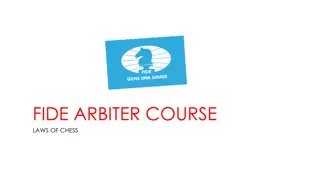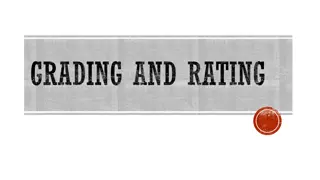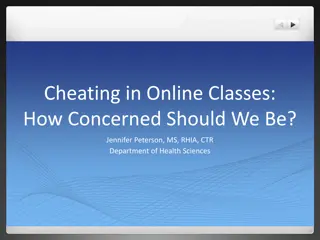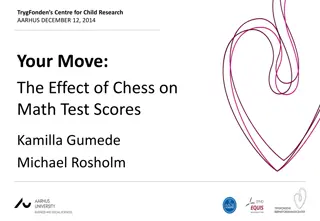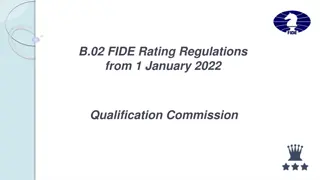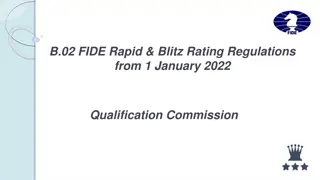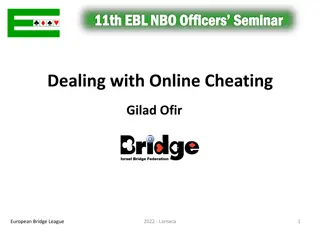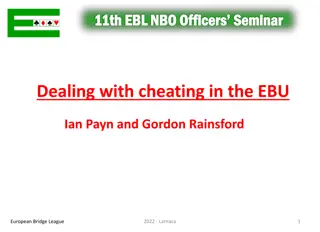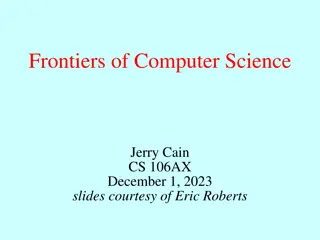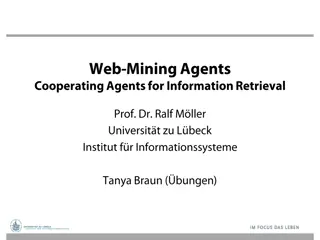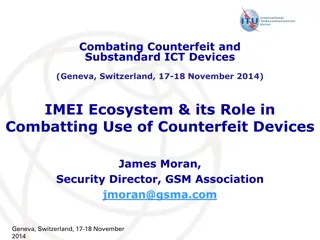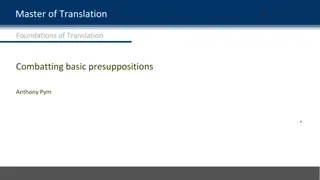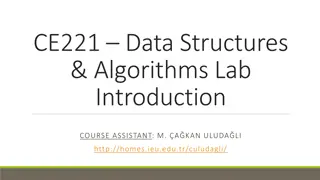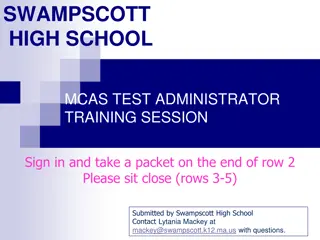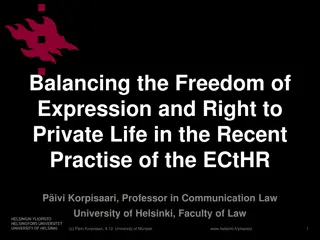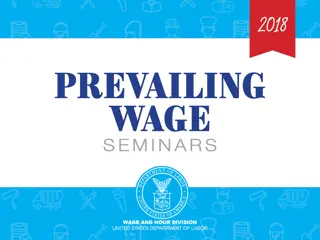Combatting Cheating in Chess: The Role of the Arbiter and FIDE Regulations
In recent years, there has been a rise in accusations of electronic cheating in chess, prompting FIDE and the Association of Chess Professionals to take action. Measures such as prohibiting electronic devices during games, inspecting players' belongings, and monitoring player behavior are essential to maintain fairness and protect the integrity of the game. Understanding how players can cheat and implementing necessary precautions can help prevent unfair practices and reassure opponents and sponsors.
Download Presentation

Please find below an Image/Link to download the presentation.
The content on the website is provided AS IS for your information and personal use only. It may not be sold, licensed, or shared on other websites without obtaining consent from the author. Download presentation by click this link. If you encounter any issues during the download, it is possible that the publisher has removed the file from their server.
E N D
Presentation Transcript
Anti-Cheating The role of the Arbiter FIDE Arbiter Seminar
Anti-Cheating In recent years there have been a number of high profile accusations of using modern technology to cheat in games. This has prompted FIDE and the Association of Chess Professionals to work together to combat the problem. Accusations of electronic cheating are increasing. Many of these are unfounded. FIDE Arbiter Seminar
Anti-Cheating Why take these measures? Important to provide assurances to opponents and sponsors. The actions that can be taken will depend on the nature of the event and the premises being used. FIDE Arbiter Seminar
Anti-Cheating 11.3.1 During play the players are forbidden to use any notes, sources of information or advice, or analyse any game on another chessboard. 11.3.2.1 During a game, a player is forbidden to have any electronic device not specifically approved by the arbiter in the playing venue. FIDE Arbiter Seminar
Anti-Cheating However, the regulations of an event may allow such devices to be stored in a player s bag, provided the device is completely switched off. This bag must be placed as agreed with the arbiter. Both players are forbidden to use this bag without permission of the arbiter. 11.3.2.2 If it is evident that a player has such a device on their person in the playing venue, the player shall lose the game. The opponent shall win. The regulations of an event may specify a different, less severe, penalty. FIDE Arbiter Seminar
Anti-Cheating Some actions will depend on local laws and may be illegal in some countries. 11.3.3 The arbiter may require the player to allow his clothes, bags, other items or body to be inspected, in private. The arbiter or person authorised by the arbiter shall inspect the player, and shall be of the same gender as the player. If a player refuses to cooperate with these obligations, the arbiter shall take measures in accordance with Article 12.9. FIDE Arbiter Seminar
Anti-Cheating How players can cheat during the game Accepting information from another player or spectator Getting information from notes, books, phones, tablets, laptops etc FIDE Arbiter Seminar
Anti-Cheating What precautions can be taken Monitor frequency of a player leaving playing area Prevent conversations between player and others Prevent electronic devices being used in playing area Use proposed FIDE screening tool (analyses games in pgn format) FIDE Arbiter Seminar
Anti-Cheating Devices which might be used Mobile phone jammer (illegal in some countries) Hand held metallic security detectors Walk through metal detectors Automatic electro-magnetic screening devices for metallic/non-metallic items Closed circuit television cameras FIDE Arbiter Seminar
Anti-Cheating Screening Games for Precaution and Information FIDE Screening Tool not a test but may provide info if accusation is made Full Statistical Test for players with regular suspicious results Arbiter s increased (unobtrusive) watching of player FIDE Arbiter Seminar
Anti-Cheating How to Deal with Suspicious Behaviour May need to follow player Record absences from playing hall (including move numbers) FIDE Arbiter Seminar
Anti-Cheating Article 11.3 - Inspecting players possessions This has many problems Legality Timing FIDE Arbiter Seminar
Anti-Cheating How to Deal with Accusations In Tournament Complainant provides reasons for suspicion Arbiter investigates Report sent to FIDE FIDE Arbiter Seminar
Form to be completed Person making complaint must be willing to be identified and sign the complaint form. FIDE Arbiter Seminar
Anti-Cheating How to Deal with Accusations Post Tournament This should have substantial evidence confession or statistical evidence FIDE Arbiter Seminar
Anti-Cheating How to Deal with False Accusations Use Article 12.9 Penalties FIDE may suspend players for making unfounded accusations FIDE Arbiter Seminar


